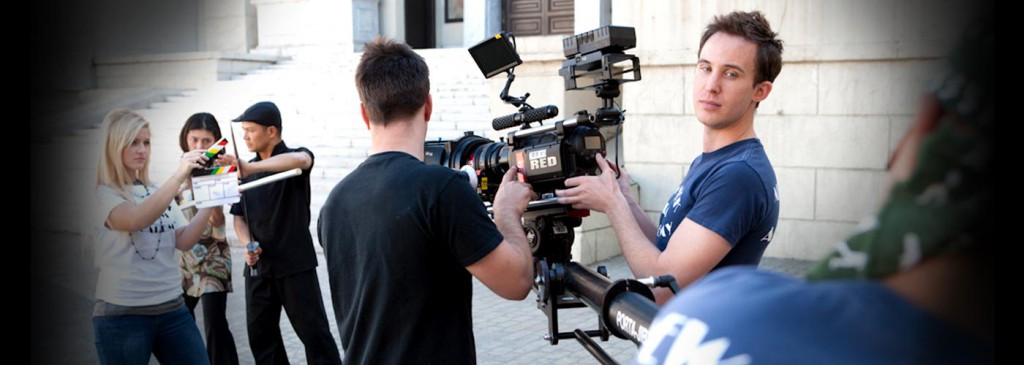“What do I do next?” is probably the most asked question posed by hundreds of thousands of undergraduates every year as they face graduation and contemplate what to do next. One perennial option that any graduate has is to go to grad school to further their studies. For many aspiring filmmakers, it is a constant conundrum.

Enrolling In An MFA Film Degree Program: What To Consider
With many undergraduate film programs focusing primarily on film studies and theory, often film graduates lack the know-how and experience of actually making films, making it hard for them to find work in such a competitive field. MFA Filmmaking programs are focused on students gaining hands-on experience in creating films, allowing burgeoning filmmakers the time and space to not simply learn the intricacies of making a film, but also to develop their voice as a filmmaker. And many notable filmmakers have earned an MFA in Filmmaking, including such luminaries as Martin Scorcese and Ang Lee.
Here are a few ways to determine whether the same choice is right for you.
Determine Your Goals
Grads contemplating enrolling in an MFA Filmmaking program should decide what exactly they wish to gain from the program. Are you aiming to become the next big name in film or, like most filmmakers, carve out a niche for yourself—be it in independent film, commercial directing, or television—and focus on that niche? Or do you aim for something in the middle? Finding the right MFA program requires research to find the school that will best prepare you to realize your goals. While many schools are renowned for nurturing a specific style of filmmaking, others focus on providing students with as well-rounded of an education as possible, giving them the necessary experience in a variety of styles and genres to help them achieve their goals upon graduating.
Consider The Creative Community
Another aspect to consider when looking at MFA Filmmaking programs is the network you create with your fellow students. While one can certainly establish a professional network through doing Production Assistant work in the hopes of rising up the ranks and gaining on-set experience, an MFA program places you alongside a creative network of individuals who can assist in pushing and formulating your creative voice.
Potential for Teaching Opportunities
In addition, by going that extra step in obtaining a degree in MFA Filmmaking, you will be eligible to supplement your professional work with teaching gigs at universities around the world that seek experienced and well-educated filmmakers to help shape the next generation of filmmakers. After all, even established filmmakers like Paul Schrader will often turn to teach in between projects, not just for financial reasons, but because they possess a genuine love of teaching. If education is something you wish to pursue in addition to filmmaking, then an MFA Filmmaking degree is an ideal choice.
Chances to Expand Your Skillset
Finally, if you majored in a different field of study as an undergraduate, but dream of making films, many MFA Filmmaking programs do not require that you major in film while getting your Bachelor’s degree. While there is undoubtedly a steeper learning curve for those who did not study film as an undergraduate, those aspiring filmmakers committed to achieving a career in film often have no problem quickly catching up to their fellow students and learning the practical skills required to excel as a filmmaker.
Finding The Right MFA Film Degree Program
In short, it really depends on the student and what she or he wishes to achieve from enrolling in an MFA Filmmaking program. After all, not only do most programs teach you the essential skills required as a filmmaker, but they also prepare you for the challenges you will face in the competitive film industry.
Thinking about getting your MFA in Filmmaking? Take a closer look at NYFA’s Masters in Filmmaking Program!